How Do You Find Relevant Healthcare Marketing Search Terms?
As a healthcare provider, you probably know the importance of reaching and connecting with potential patients. One of the most effective ways to do this is through online marketing, specifically search engine optimization (SEO). However, this requires you to have a clear understanding of which search terms to include in your content.
Knowing which healthcare marketing terms to include in your content can significantly improve your rankings on search engines such as Google, Bing, and Yahoo. These search terms, also known as keywords, are the words and phrases people use when searching for information related to healthcare. Incorporating these keywords into your website and online content increases the chances of your practice being found by potential patients who are looking for your services.
8 Common Healthcare Marketing Terms and Definitions
To help you navigate the world of healthcare marketing, the following is a list of some of the common healthcare marketing terms to familiarize yourself with:
1. Healthcare Marketing
Marketing in healthcare involves utilizing strategic methods of communication and outreach to draw in patients, guide them through the healthcare experience, and maintain engagement with the healthcare system.
To maximize engagement and bolster growth, savvy healthcare marketers leverage a blend of online and offline tactics, including omnichannel approaches and targeted campaigns. Achieving success in healthcare marketing involves assessing and monitoring critical indicators such as key performance indicators (KPIs) and return on investment (ROI).
2. Telemedicine
Telemedicine refers to using technology, such as video conferencing and remote monitoring, to deliver healthcare services remotely. This allows patients to receive medical consultations, diagnoses, and treatment from the comfort of their own homes, reducing the need for in-person visits to a healthcare facility. This has become increasingly popular in recent years as technology has advanced, and healthcare providers are finding new ways to expand their reach.
3. Patient Acquisition Strategies
Patient acquisition strategies refer to the methods and tactics used by healthcare providers to attract new patients and grow their patient base. These strategies may include various marketing channels and tactics, such as referral programs, networking events, and developing relationships with other healthcare providers.
Some key elements of patient acquisition strategies include developing a targeted marketing plan, creating engaging and informative content, and measuring the success of marketing efforts through metrics such as website traffic, lead generation, and patient retention. Additionally, improving the patient experience, providing excellent customer service, and building trust with the patient are critical components of acquiring new patients.
4. Digital Health Marketing
Digital health marketing is the practice of using digital channels, such as social media and search engine optimization (SEO), to promote healthcare services. This includes creating and distributing engaging content on digital platforms such as websites and apps, optimizing web pages for search engines, and leveraging social media to reach new patients.
Digital health marketing offers the opportunity to reach patients who may not be aware of your services, as well as engage with existing patients and build relationships with them. Moreover, digital health marketing can help healthcare providers build trust and loyalty with their patients, improve the patient experience, and increase online visibility.
5. Advanced Healthcare Analytics
Advanced healthcare analytics refers to the use of advanced data analysis techniques and technologies to collect, process, and interpret large and complex healthcare data. This may include using machine learning, natural language processing, and other advanced methods to extract insights and knowledge from healthcare data. Advanced healthcare analytics may improve patient outcomes, reduce healthcare costs, and optimize clinical and operational processes.
6. Physician Outreach
Physician outreach refers to the process of building relationships and communicating with physicians, such as primary care physicians, specialists, and other healthcare providers. The goal of physician outreach is to educate physicians on the services and products offered by a healthcare organization and to gain their support and referral of patients.
Physician outreach can include a variety of different tactics and channels, such as face-to-face meetings, phone calls, email, and direct mail. It may also consist of providing continuing medical education (CME) opportunities, sponsorships, and other incentives.
7. Healthcare Public Relations
Healthcare public relations (PR) is the practice of managing the spread of information between an organization and the public. In the context of healthcare, it involves developing and implementing strategies to promote a healthcare organization, its services, and its message to the public through various channels such as media events and social media. Healthcare PR aims to increase awareness and understanding of the organization, its mission, and its services among its target audience.
Healthcare PR is also used to manage negative publicity and help the organization take control of its messaging and regain the public’s trust. Overall, healthcare PR is integral to healthcare marketing and allows organizations to build and maintain a positive image, connect with the public, and ultimately drive patient engagement and revenue.
8. Medical Website Design
Medical website design refers to creating a website that effectively represents a medical practice, hospital, or other healthcare organization. This typically involves developing a website that is mobile-friendly, easy to navigate, and provides patients with the information they need to make informed decisions about their health. It should also be easy for patients to schedule appointments and access patient portals.
Essential elements of a medical website design include high-quality images and videos, patient reviews, and a blog that provides helpful health information. Furthermore, a medical website design should also be optimized for search engines and include keyword research to determine the most effective SEO terms to include.
The Benefits of Finding Relevant Search Terms for Your Content
The benefits of finding relevant search terms for your content are numerous. Without the proper keywords, your website will likely be lost amongst the thousands of other healthcare practices competing for the same patients. The following benefits highlight how vital finding relevant keywords is to the success of your practice.
Increased Visibility
The visibility of your practice can make or break its success. If no one can find your content, it won’t matter how good it is. By including relevant search terms in your content, more potential patients will be able to find your practice. This may lead to higher website traffic, more conversions, and, ultimately, more revenue for your practice.
Higher Click-through Rates
Including relevant keywords in your content may improve the relevance and quality of your content, making it more likely users will engage with it. This may lead to higher click-through rates on your website, social media profiles, and other online assets, as users are more likely to click on links they find interesting and informative. This may also lead to a higher level of trust in your practice and its services, which can boost patient acquisition and retention.
Better Targeting
If you optimize your content with the exact keywords patients are searching for, you may be able to reach and engage with a more targeted audience. This can help you hone in on the exact type of patient you are looking for, as well as gain a better understanding of their needs, wants, and interests. Better targeting often leads to a better patient experience and higher levels of patient loyalty.
Greater Engagement
Using relevant keywords and creating interesting and informative content may increase the chances of users engaging with your content. This includes actions such as leaving comments, sharing your content on social media, or booking appointments with your practice. Greater engagement can lead to several benefits for your healthcare practice.
For example, it can increase brand awareness, as users are more likely to remember your practice if they have engaged with your content. It may also help build trust in your practice and its services, increasing the chances of users becoming patients. Greater engagement may lead to more word-of-mouth referrals, as users are more likely to recommend your practice to others if they have had a positive experience with your content.
Elevated ROI
One of the most powerful ways to increase your return on investment is to use keywords that align with the products and services you offer. This may include using keywords related to your specialty, location, insurance acceptance, and more. Doing so can help ensure that the traffic coming to your website is highly relevant. This is crucial because if you are delivering potential patients content they aren’t interested in, it won’t matter how much money you put into your marketing – you will be unlikely to see a return on your investment.
7 Ways To Uncover the Top Search Terms To Improve Your SEO
Often, the hardest part of SEO isn’t creating the content. It’s finding the right keywords to catapult your practice’s position on search engine results pages (SERPs). To help you get started, here are seven ways you can uncover the top search terms to improve your SEO:
1. Using Keyword Research Tools
Perhaps the best way to uncover the top search terms is by using keyword research tools. These tools are designed to help you find relevant keywords that your potential patients may be searching for. This is commonly done by delivering data you otherwise wouldn’t be able to access, such as search volume, competition metrics, and keyword difficulty. Using a keyword research tool allows you to determine which terms to target in your content and how to optimize them for success.
2. Analyzing Your Competitors
Another way to find the top keywords you should be using in your content is to keep an eye on your competitors, especially those ranking above you. Taking the time to reverse engineer their strategy may help your practice uncover the search terms they are using to outrank you. This can help you determine which keywords and phrases to use, as well as give you a better understanding of how your competitors are targeting potential patients. You can use this knowledge to stay one step ahead of your competition.
3. Reviewing Search Engine Results
Analyzing the search engine results for specific keywords can give you an idea of what words your target audience uses to find information related to your healthcare practice and services. By searching for relevant keywords on Google, Bing, or other search engines, you can see which websites and pages are ranking high for those keywords. This can give you an idea of the types of content and keywords that are working well within your industry. You can also see the meta tags and meta descriptions of the top-ranking pages, which can give you an idea of how to optimize your website for those keywords.
4. Setting Up Google Analytics
Setting up Google Analytics on your web page can help you uncover the top search terms used to find your practice. By tracking how users interact with your website, Google Analytics can give you insight into the keywords they are using and which ones have produced the best results. This data can then be analyzed to determine which search terms should be included in your content.
5. Gaining Customer Feedback
Talking to your existing patients can be a great way to uncover top search terms. Their feedback can provide insight into the type of language and keywords they use when searching for healthcare practices and services in your area. This information can help you determine which search terms are most important to include in your content.
To gather this data, you can create surveys or ask your patients directly. You can also use social media platforms to conduct polls, view common questions from prospective patients, and gain insight into what they are looking for. While gaining customer feedback, consider their demographics, such as age, gender, and location. This will help you cater your content to the people who are most likely to use your services.
6. Reading Industry-related Forums and Blogs
The healthcare industry is always rapidly changing, and staying up-to-date on the latest topics and trends is vital. Reading forums and blogs related to the healthcare industry is a great way to uncover top search terms. Pay attention to what other people are talking about, as this can give you an idea of which topics and keywords are hot right now.
Once you’ve uncovered the top search terms related to healthcare marketing, it’s time to start incorporating them into your content. Knowing which keywords to target can drive SEO success and help improve your rankings online. Leveraging these search terms in your content can increase the visibility of your practice and reach a larger audience.
7. Understanding Your Target Audience’s Intent
Why your target audience is searching for a particular healthcare topic is just as important as what they are searching for. Understanding the intent behind a search query can help you create content that directly answers potential patients’ questions and aligns with your target audience’s needs. This can also lead to an increase in organic traffic over time. So as you uncover the top search terms related to healthcare marketing, consider the intent behind each query.
Boost Your Practice’s SEO With Levo Health
Are you ready to boost your practice’s SEO and increase visibility for potential patients? Partner with Levo Health today and start seeing results. With our team of SEO experts, we’ll help you uncover the top search terms related to healthcare marketing, optimize your content for those terms, and much more. Contact us and learn how Levo Health can help you accelerate your practice’s growth.











